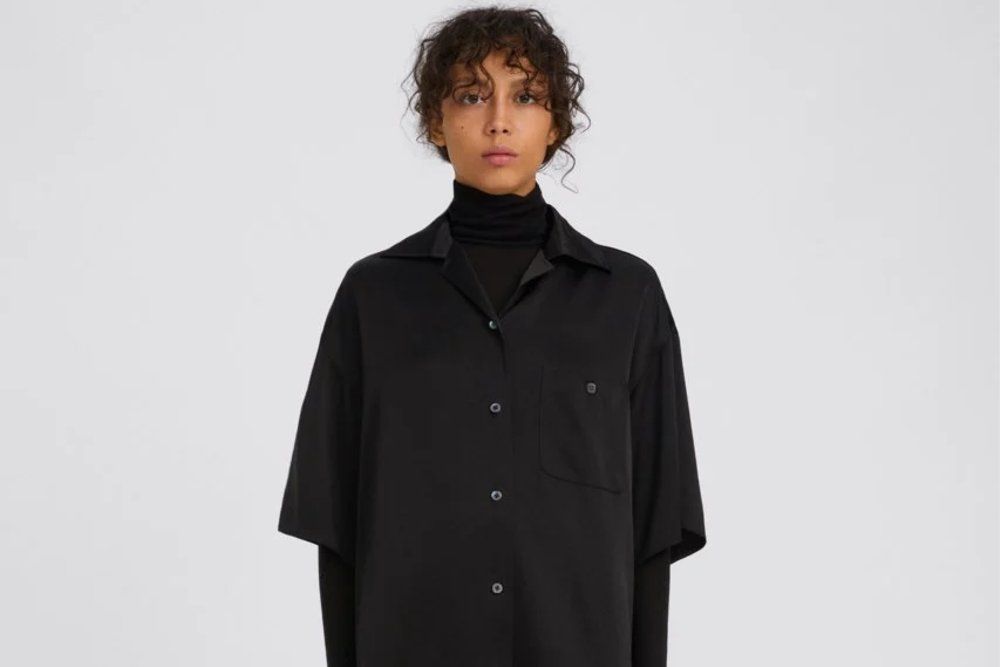
Filippa K is a sustainable clothing brand that designs affordable and timeless styles with Scandinavian minimalism and long-lasting quality.
Founded in 1993 by Filippa Knutsson, Filippa K offers timeless essentials for women and men made with ethically-sourced materials and responsible standards.
Filippa K is a household name in Sweden and a leading Scandinavian fashion brand. Sustainability is at the core of everything the brand does.
Filippa K aims to drive a movement of mindful consumption. It works hard to create products and a community committed to slowing down the fashion industry.
Filippa K is an ethical fashion brand based in Stockholm, Sweden. It makes sustainable womenswear, menswear, and accessories and offers a beautiful collection of basics, denim, loungewear, knitwear, activewear, outerwear, and underwear.
Panaprium is independent and reader supported. If you buy something through our link, we may earn a commission. If you can, please support us on a monthly basis. It takes less than a minute to set up, and you will be making a big impact every single month. Thank you!
Sustainability Rating: 7/10
Rating FAQ
Category: Clothing, bags, shoes, accessories, jewelry
For: Women, men
Type: Basics, denim, loungewear, knitwear, outerwear, activewear, underwear, boots, sandals
Style: Casual, classic
Quality: Medium
Prices: $$
Sizes: XS-L, 2-10 (US), 4-14 (UK), 32-42 (EU), 4-14 (AU)
Fabrics: Cotton, linen, lyocell, viscose, cupro, polyester, nylon, spandex, polyurethane, rubber, leather, wool, silk
100% Organic: No
100% Vegan: No
Ethical & Fair: Yes
Recycling: Yes
Producing country: China, Italy, Lithuania, Marocco, Portugal, Romania, Spain, Turkey, Ukraine, Belarus, Vietnam
Certifications: GOTS, OCS, Oeko-Tex, Bluesign, GRS, RWS, FSC, Fair Wear
Sustainability Practices
Filippa K is committed to accelerating sustainability and addressing environmental and social concerns. It uses recyclable FSC-certified paper bags and works to lower its impact.
The Filippa K Studio is an experimental retail space for repairing, remaking, and reselling pre-loved and past season garments through its Collect programs or as claims.
Filippa K uses a large proportion of sustainable materials, such as organic cotton and linen, or recycled fabrics, such as recycled polyester and regenerated nylon.
Some of its clothes contain semi-synthetic fibers or regenerated cellulosic fabrics such as lyocell, viscose, and cupro.
Filippa K carefully selects its factories and chooses partners who align with its ethical values and meet its sustainability standards.
Filippa K has a code of conduct that applies to all its suppliers and subcontractors based on the regulations set by the International Labor Organization (ILO).
Filippa K assesses compliance with its Code of Conduct by informal visits or third-party audits with or without notice. It's a member of Fair Wear to improve the working conditions in its factories.
Filippa K doesn't use any exotic animal skin, or hair, fur, angora. But it uses leather, wool, and silk to manufacture some of its clothing.
These animal-derived materials are cruel and unethical. They also harm the environment by producing greenhouse gases and wastes. More sustainable alternatives exist.
Sustainability Goals
Filippa K is selecting more sustainable and higher quality materials that are ethically sourced, emphasizing recycled materials.
Filippa K aims to make its collections 100% recyclable by 2030, with full transparency and traceability across each component of the supply chain.
Filippa K is working towards Fair Wear Foundation leader status by ensuring fair wages, safe work environments, and no exploitative labor or corruption.
Buy Here
Discover Filippa K's sustainable collections at Filippa-k.com.
Reviews And Experiences With Filippa K
Have you had (good) experiences with shopping at or the products of Filippa K? Then leave us your rating below.
What We're Up Against
Multinational corporations overproducing cheap products in the poorest countries.
Huge factories with sweatshop-like conditions underpaying workers.
Media conglomerates promoting unethical, unsustainable products.
Bad actors encouraging overconsumption through oblivious behavior.
- - - -
Thankfully, we've got our supporters, including you.
Panaprium is funded by readers like you who want to join us in our mission to make the world entirely sustainable.
If you can, please support us on a monthly basis. It takes less than a minute to set up, and you will be making a big impact every single month. Thank you.






























0 comments